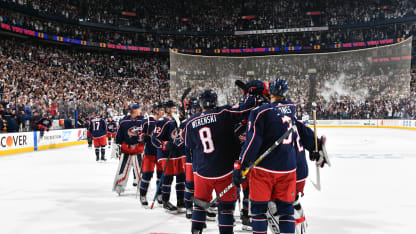"You know what? I don't mind that, either," Foligno said when asked if he feels the team will be seen as the underdog against Toronto. "I think you have to win in order to be seen (as the favorite). With all due respect to Toronto, they're probably a team that feels the same way. They get talked about more because they're in a bigger market, but we haven't really accomplished anything. We've won one series in our organization. So for me, you win a Stanley Cup, then you can start getting talked about and the respect factor.


